
Members of pro-government forces on Thursday in a district of Aleppo, Syria, that had been retaken from rebels: photo by George Ourfalian/Agence France-Presse, 10 November 2016

Members of pro-government forces on Thursday in a district of Aleppo, Syria, that had been retaken from rebels: photo by
George Ourfalian/Agence France-Presse, 10 November 2016


Antique cars and trucks along the roadside, Montana: photo by Carol M. Highsmith, 29 September 2005 (Library of Congress)

Antique trucks along the road, Montana: photo by Carol M. Highsmith, 29 September 2005 (Library of Congress)

Dr. Mark Mills drawing diagrams during testimony before the Congressional Joint Atomic Energy hearings on atomic radioactive fallout: photo by Thomas J. O'Halloran, US News & World Report, 27 May 1957 (Library of Congress)


Installation of atomic generator in Baltimore Lighthouse, Chesapeake Bay, Maryland: photo by U.S.Coast Guard, 1964 (Library of Congress)

A
baby is tested for radiation in Nihonmatsu, Fukushima Prefecture, 15
March 2011. Panic swept Tokyo on Tuesday after a rise in radioactive
levels around an earthquake-hit nuclear power plant north of the city,
causing some to leave the capital or stock up on food and supplies: photo by Reuters/Kyodo

#Iraq A displaced woman holds her cat, Lulu, as she waits for transport near #Shaqouli #AFP Photo by @odd_andersen: image via Aurelia BAILLY @AureliaBAILLY, 10 November 2016

Annette del Sur publicizing salvage campaign in yard of Douglas Aircraft Company, Long Beach, California: photo by Alfred T. Palmer, October 1942 (Farm Security Administration/Office of War Information Collection, Library of Congress)

Annette del Sur publicizing salvage campaign in yard of Douglas Aircraft Company, Long Beach, California: photo by Alfred T. Palmer, October 1942 (Farm Security Administration/Office of War Information Collection, Library of Congress)

Shrek at Macy's Thanksgiving Day Parade, New York City: photo by Joiseyshowaa, 2007
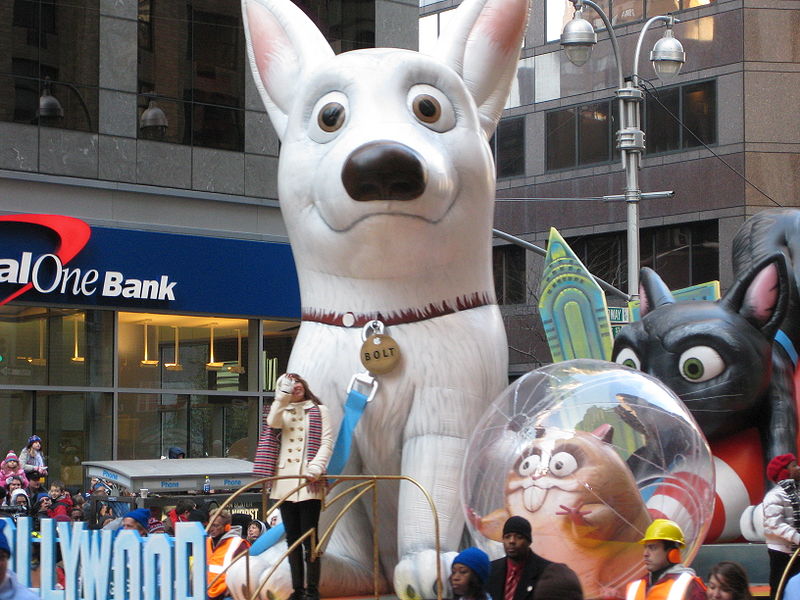
Miley Cyrus on board the Bolt float at Macy's Thanksgiving Day Parade, New York City: photo by Ben W, 2008

SYRIA - Syrian pro-government forces walk around in Aleppo's western Minyan district. By George Ourfalian #AFP: image via Frédérique Geffard @fgeffardAFP, 10 November 2016
Theodor Adorno: Some Thoughts On Existence in the Present Technological Society
I Progress
I Progress

Antique cars and trucks along the roadside, Montana: photo by Carol M. Highsmith, 29 September 2005 (Library of Congress)
For
a theoretical account of the category of progress it is necessary to
scrutinize the category so closely that it loses its semblance of
obviousness, both in its positive and its negative usage. And yet such
proximity also makes the account more difficult.
Even more than other concepts, the concept of progress dissolves upon
attempts to specify its exact meaning, for instance what progresses and
what does not. Whoever wants to define the concept precisely easily
destroys what he is aiming at. The subaltern prudence that refuses to
speak of progress before it can distinguish progress in what, of what,
and in relation to what, displaces the unity of the moments, which
within the concept ritually elaborate each other, into a mere
juxtaposition. By insisting on exactitude where the impossibility of the
unambiguous appertains to the subject matter itself, dogmatic
epistemology misses its object, sabotages insight and helps to
perpetuate the bad by zealously forbidding reflection upon what, in the
age of both utopian and absolutely destructive possibilities, the
consciousness of those entangled would like to discover: whether there
is progress. Like every philosophical term, 'progress' has its
equivocations; and as in any such term, these equivocations also
register a commonality. What at this time one should understand by
'progress' one knows vaguely, but precisely: for just this reason one
cannot employ the concept roughly enough. To use the term pedantically
merely cheats it out of what it promises: an answer to the doubt and
the hope that things will finally get better, that people will at last
be able to breathe a sigh of relief. For this reason alone one cannot
say precisely what progress should mean to people, because the crisis
of the situation is that precisely while everyone feels the crisis, the
words bringing resolution are missing. Only those reflections about
progress have truth that immerse themselves in progress and yet
maintain distance, withdrawing from paralyzing facts and specialized
meanings. Today reflections of this kind come to a point in the
contemplation of whether humanity is capable of preventing catastrophe.
The forms of humanity's own global societal constitution threaten its
life, if a self-conscious global subject does not develop and
intervene.

Antique trucks along the road, Montana: photo by Carol M. Highsmith, 29 September 2005 (Library of Congress)
Theodor Adorno: from Progress, Lecture at Münster Philosophers' Congress, 22 October 1962, translated by Henry Pickford in Theodor Adorno: Critical Models: Interventions and Catchwords, 1998
U.S. President Barack Obama shakes hands with President-elect
Donald Trump following a meeting in the Oval Office in Washington, DC.
Trump is
scheduled to meet with members of the Republican leadership in Congress
later today on Capitol Hill.: photo by Win McNamee, 10 November 2016
U.S. President Barack Obama shakes hands with President-elect Donald
Trump following a meeting in the Oval Office in Washington, DC. Trump is
scheduled to meet with members of the Republican leadership in Congress
later today on Capitol Hill.: photo by Win McNamee, 10 November 2016
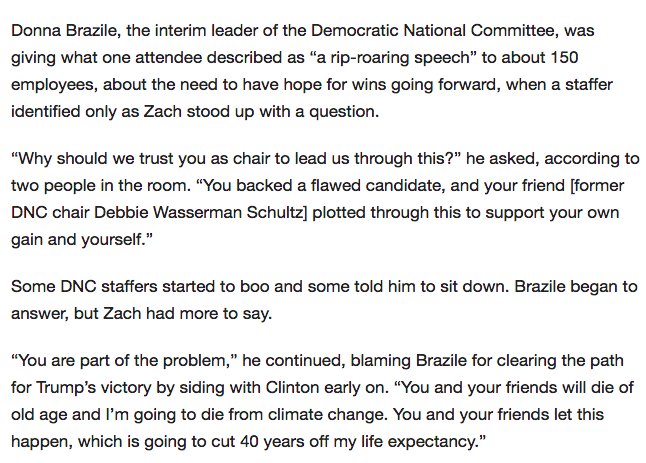

DNC
held its first staff meeting today since Clinton's loss. This
happened.: image via Jennifer Bender @jbendery, 11 November 2016
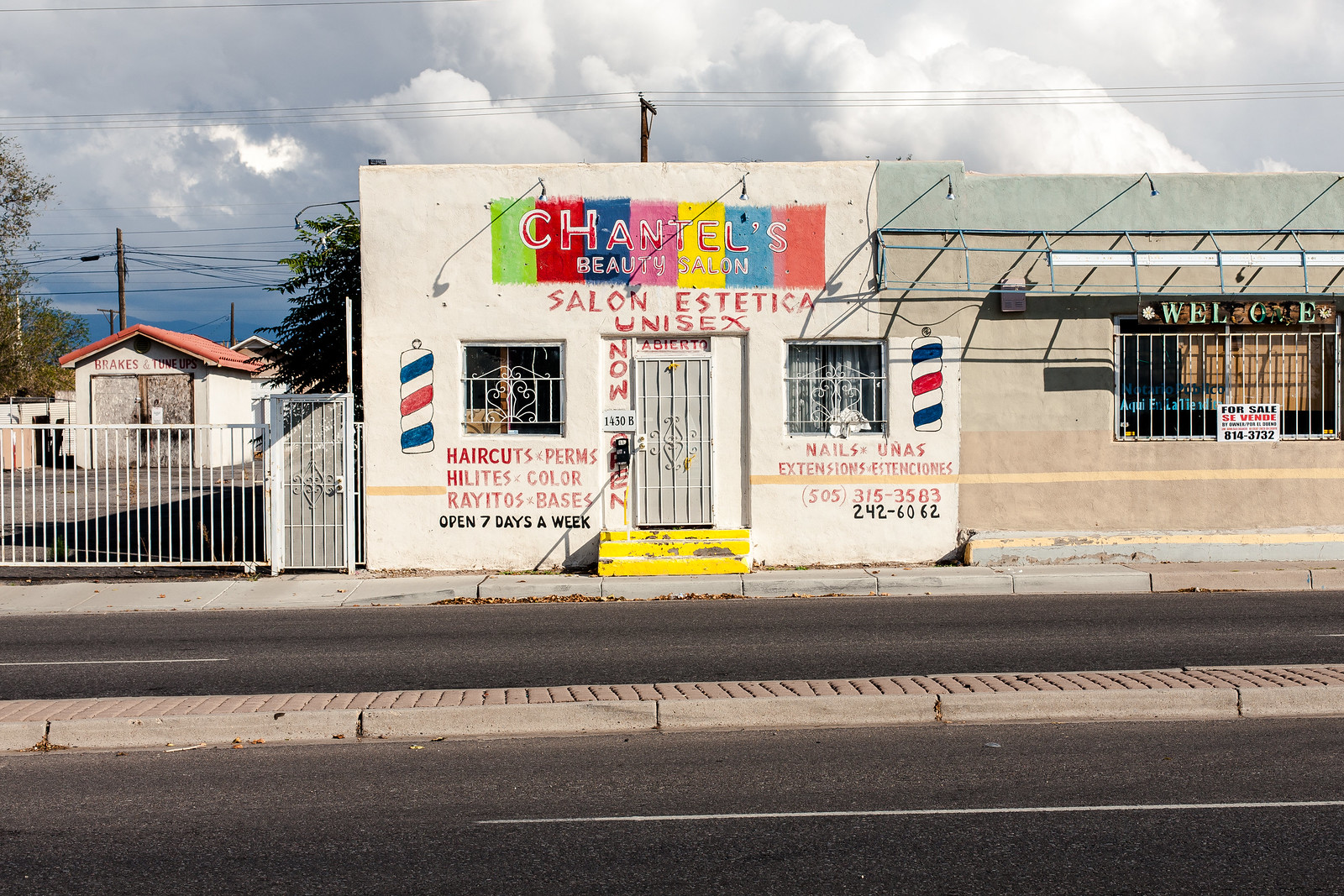
Albuquerque, New Mexico: photo by Jorge Guadalupe Lizárraga, November 2016

Albuquerque, New Mexico: photo by Jorge Guadalupe Lizárraga, November 2016
II The Veil of Technology

Dr. Mark Mills drawing diagrams during testimony before the Congressional Joint Atomic Energy hearings on atomic radioactive fallout: photo by Thomas J. O'Halloran, US News & World Report, 27 May 1957 (Library of Congress)
Each
epoch produces those personalities -- types varying according to their
distribution of psychic energy -- it needs societally. A world where
technology occupies such a key position as it does nowadays produces
technological people, who are attuned to technology. This has its good
reason: in their own narrow field they will be less likely to be fooled
and that can also affect the overall situation. On the other hand,
there is something exaggerated, irrational, pathogenic in the
present-day relationship to technology. This is connected with the
"veil of technology." People are inclined to take technology to be the
thing itself, as an end in itself, a force of its own, and they forget
that it is an extension of human dexterity. The means -- and technology
is the epitome of the means of self-preservation of the human species
-- are fetishized, because the ends -- a life of human dignity -- are
concealed and removed from the consciousness of the people.

A radiation detector marks 0.6 microsieverts, exceeding normal day data, 15 March 2011, near Shibuya train station in Tokyo: photo by Associated Press/Kyodo News, 15 March 2011
It
is by no means clear precisely how the fetishization of technology
establishes itself within the individual psychology of particular
people, or where the threshold lies between a rational relationship to
technology and the overvaluation that finally leads to the point where
one who cleverly devises a train system that brings victims to Auschwitz
as quickly and smoothly as possible forgets about what happens to them
there. With this type, who worships technology, we are concerned --
baldly put -- with people who cannot love. This is not meant to be
sentimental or moralistic but rather describes a deficient libidinal
relationship to other persons. Those people are thoroughly cold; deep
within themselves they must deny the possibility to love, must withdraw
their love from other people initially, before it can even unfold.

Installation of atomic generator in Baltimore Lighthouse, Chesapeake Bay, Maryland: photo by U.S.Coast Guard, 1964 (Library of Congress)
Those prejudiced, authoritarian characters whom we examined at Berkeley in The Authoritarian Personality
provided us with much proof of this. A test subject -- the expression
itself already comes from reified consciousness -- said of himself, "I
like nice equipment" [Ich habe hübsche Ausstattungen, hübsche Apparaturen gern],
completely indifferent about what equipment it was. His love was
absorbed by things, machines as such. The alarming thing about this --
alarming, because it can seem so hopeless to combat it -- is that this
trend goes hand in hand with that of the entire civilization. To
struggle against it means as much as to struggle against the world
spirit...

Theodor Adorno (1903-1969): from Education After Auschwitz: shortened transcription of radio lecture
"Wissenschaftliche Ehrgangerung in Amerika," broadcast 31 January 1968, translated by Henry W. Pickford in Theodor Adorno: Critical Models: Interventions and Catchwords, 1998
A displaced Iraqi woman holds her cat, Lulu, as she waits for
transport in the Iraqi Kurdish checkpoint village of Shaqouli, about 35
kilometres east of Mosul, after she fled her home with her children in
the eastern Intisar neighbourhood of the embattled city: photo by Odd Andersen/AFP, 10 November 2016
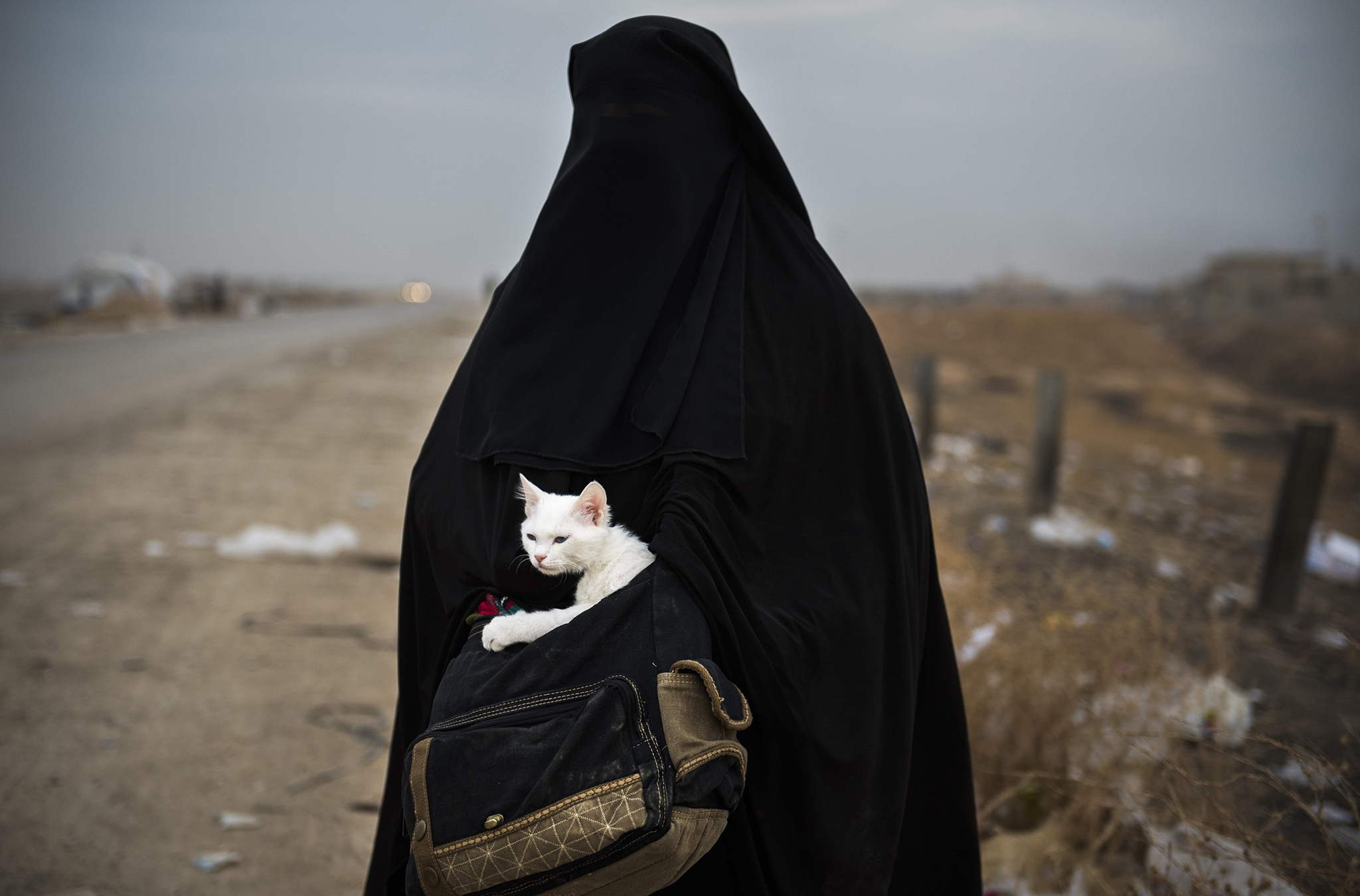

A displaced Iraqi woman holds her cat, Lulu, as she waits for
transport in the Iraqi Kurdish checkpoint village of Shaqouli, about 35
kilometres east of Mosul, after she fled her home with her children in
the eastern Intisar neighbourhood of the embattled city: photo by Odd Andersen/AFP, 10 November 2016

#Iraq A displaced woman holds her cat, Lulu, as she waits for transport near #Shaqouli #AFP Photo by @odd_andersen: image via Aurelia BAILLY @AureliaBAILLY, 10 November 2016
III Unadorned Make-Up

Annette del Sur publicizing salvage campaign in yard of Douglas Aircraft Company, Long Beach, California: photo by Alfred T. Palmer, October 1942 (Farm Security Administration/Office of War Information Collection, Library of Congress)
The
omnipresence of technology imprints itself upon objects and everything
historical... Prototypical here is the actress who manages to appear
fresh and painstakingly made up with her hair perfectly arranged even in
the midst of the most appalling dangers... She is so closely, so
precisely and so pitilessly photographed that the magic which her
make-up is intended to exert is heightened by the lack of illusion with
which it is thrust before the viewer as literally true and
unexaggerated. Mass culture is unadorned make-up.

Annette del Sur publicizing salvage campaign in yard of Douglas Aircraft Company, Long Beach, California: photo by Alfred T. Palmer, October 1942 (Farm Security Administration/Office of War Information Collection, Library of Congress)
Theodor Adorno (1903-1969): from The Schema of Mass Culture, 1978 (translated by Nicholas Walker), in The Culture Industry, ed. J.M. Bernstein, 1991
Boys wait to collect vegetables from a pile of rotten vegetables near a dustbin in Peshawar, Pakistan: photo by Fayaz Aziz/Reuters, 10 November 2016
IV Polymorphic Meaning in Mass Media

Shrek at Macy's Thanksgiving Day Parade, New York City: photo by Joiseyshowaa, 2007
Mass
media are not simply the sum total of the actions they portray or of
the messages that radiate from those actions. Mass media also consist
of various layers of meanings superimposed on one another, all of which
contribute to the effect. True, due to their calculative nature,
these rationalized products seem to be more clear-cut in their meaning
than authentic works of art, which can never be boiled down to some
unmistakeable 'message'. But the heritage of polymorphic meaning has
been taken over by culture industry inasmuch as what it conveys becomes
itself organized in order to enthral the spectators on various
psychological levels simultaneously. As a matter of fact, the hidden
message may be more important than the overt, since this hidden message
will escape the controls of consciousness, will not be 'looked
through', will not be warded off by sales resistance but is likely to
sink into the spectator's mind.
Spongebob
Squarepants, Energizer Bunny and Pikachu with Poké Ball shown tied
down before 2006 Macy's Thanksgiving Day Parade, New York City: photo by Sullnyflhi, 2007

Miley Cyrus on board the Bolt float at Macy's Thanksgiving Day Parade, New York City: photo by Ben W, 2008
Theodor Adorno (1903-1969)): from How to Look at Television (excerpt), in The Quarterly of Film, Radio and Television 8 (3), 1954, reprinted in The Culture Industry, ed. J.M. Bernstein, 1991
A rider and his horse from the Spanish Riding School of Vienna perform a dress rehearsal at the SSE Arena in London: photo by Peter Nicholls/Reuters, 10 November 2016
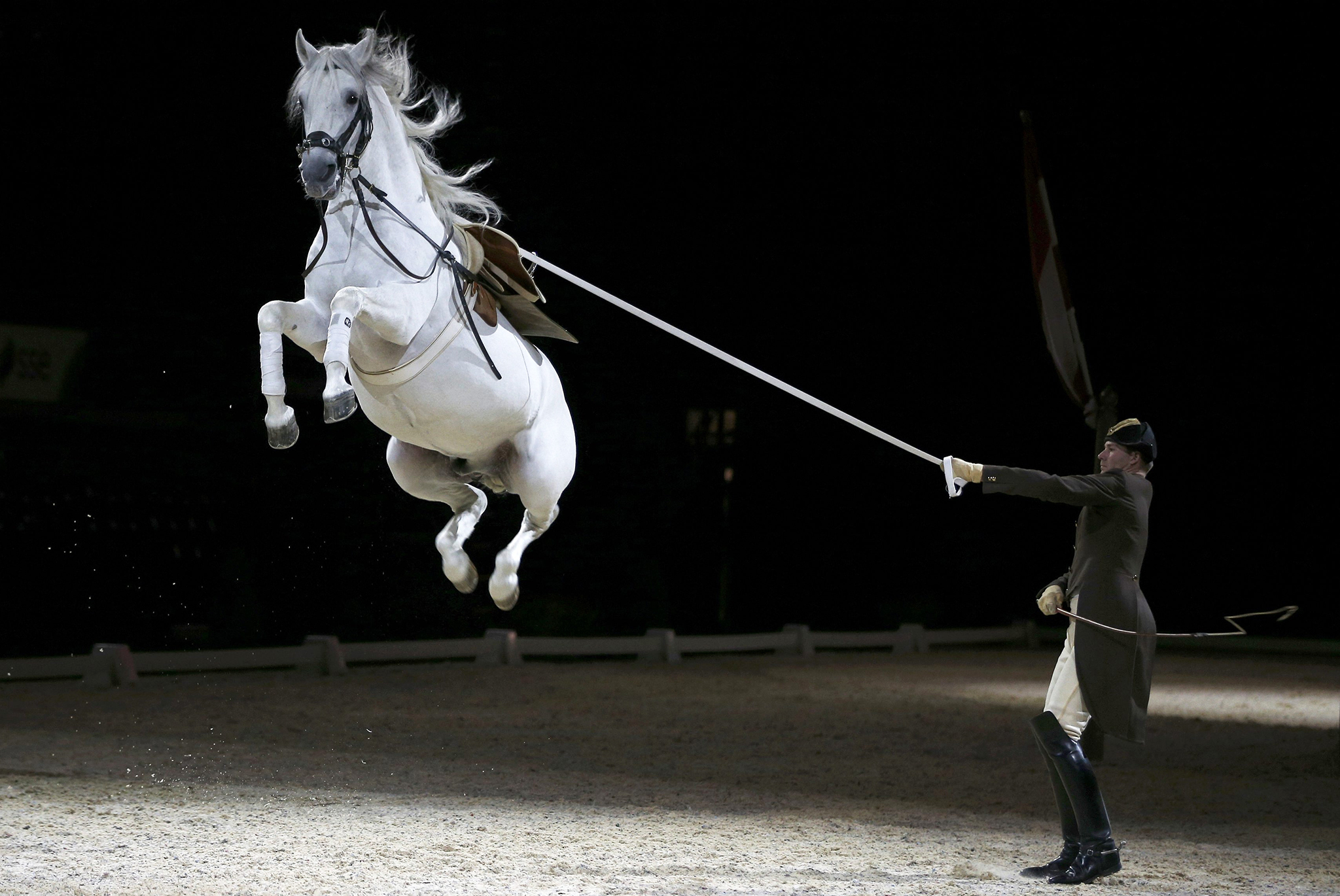
A rider and his horse from the Spanish Riding School of Vienna perform a dress rehearsal at the SSE Arena in London: photo by Peter Nicholls/Reuters, 10 November 2016
A squirrel carries a nut in a park after a heavy snowfall in Minsk, Belarus: photo by Sergei Grits/AP, 10 November 2016
A member of the Special Weapons and Tactics (SWAT) team stands guard
as residents look on during an anti-drug operation at an informal
settlers area in Manila: photo by Ted Aljibe/AFP, 10 November 2016
A man holds a poster as he takes part in a protest against President-elect Donald Trump in New York City: photo by Kena Betancur/AFP, 10 November 2016

A man holds a poster as he takes part in a protest against President-elect Donald Trump in New York City: photo by Kena Betancur/AFP, 10 November 2016
Franklin D. Roosevelt: The Economic Machine Is Broken (1932)

Douglas County resettlement farmsteads, Nebraska, May 1936: photo by Arthur Rothstein, Resettlement Administration/Farm Security Administration (National Archives and Records Administration)
How
sadly different is the picture which we see around us today! If only
the mirage had vanished, we should not complain, for we should all be
better off. But with it have vanished, not only the easy gains of
speculation, but much of the savings of thrifty and prudent men and
women, put by for their old age and for the education of their
children. With these savings has gone, among millions of our fellow
citizens, that sense of security to which they have rightly felt they
are entitled in a land abundantly endowed with natural resources and
with productive facilities to convert them into the necessities of life
for all of our population. More calamitous still, there has vanished
with the expectation of future security the certainty of today's bread
and clothing.
Some of you -- I hope not many -- are wondering today how and where you will be able to earn your living a few weeks or a few months hence. Much has been written about the hope of youth. I prefer to emphasize another quality. I hope that you who have spent four years in an institution whose fundamental purpose, I take it, is to train us to pursue truths relentlessly and to look at them courageously, will face the unfortunate state of the world about you with greater clarity of vision than many of your elders.
As you have viewed this world of which you are about to become a more active part, I have no doubt that you have been impressed by its chaos, its lack of plan. Perhaps some of you have used stronger language. And stronger language is justified. Even had you been graduating, instead of matriculating, in these rose-colored days of 1928, you would, I believe, have perceived this condition. For beneath all the happy optimism of those days there existed lack of plan and a great waste.
This failure to measure true values and to look ahead extended to almost every industry, every profession, every walk of life. Take, for example, the vocation of higher education itself.
If you had been intending to enter the profession of teaching, you would have found that the universities, the colleges, the normal schools of our country were turning out annually far more trained teachers than the schools of the country could possibly use or absorb. You and I know that the number of teachers needed in the Nation is a relatively stable figure, little affected by the depression and capable of fairly accurate estimate in advance with due consideration for our increase in population. And yet, we have continued to add teaching courses, to accept every young man or young woman in those courses without any thought or regard for the law of supply and demand. In the State of New York alone, for example, there are at least seven thousand qualified teachers who are out of work, unable to earn a livelihood in their chosen profession just because nobody had the wit or the forethought to tell them in their younger days that the profession of teaching was gravely oversupplied.
Take, again, the profession of the law. Our common sense tells us that we have too many lawyers and that thousands of them, thoroughly trained, are either eking out a bare existence or being compelled to work with their hands, or are turning to some other business in order to keep themselves from becoming objects of charity. The universities, the bar, the courts themselves have done little to bring this situation to the knowledge of young men who are considering entering any one of our multitude of law schools. Here again foresight and planning have been notable for their complete absence.
In the same way we cannot review carefully the history of our industrial advance without being struck with its haphazardness, the gigantic waste with which it has been accomplished, the superfluous duplication of productive facilities, the continual scrapping of still useful equipment, the tremendous mortality in industrial and commercial undertakings, the thousands of dead-end trails into which enterprise has been lured, the profligate waste of natural resources. Much of this waste is the inevitable by-product of progress in a society which values individual endeavor and which is susceptible to the changing tastes and customs of the people of which it is composed. But much of it, I believe, could have been prevented by greater foresight and by a larger measure of social planning. Such controlling and directive forces as have been developed in recent years reside to a dangerous degree in groups having special interests in our economic order, interests which do not coincide with the interests of the Nation as a whole. I believe that the recent course of our history has demonstrated that, while we may utilize their expert knowledge of certain problems and the special facilities with which they are familiar, we cannot allow our economic life to be controlled by that small group of men whose chief outlook upon the social welfare is tinctured by the fact that they can make huge profits from the lending of money and the marketing of securities -- an outlook which deserves the adjectives "selfish" and "opportunist."
You have been struck, I know, by the tragic irony of our economic situation today. We have not been brought to our present state by any natural calamity -- by drought or floods or earthquakes or by the destruction of our productive machine or our man power. Indeed, we have a superabundance of raw materials, a more than ample supply of equipment for manufacturing these materials into the goods which we need, and transportation and commercial facilities for making them available to all who need them. But raw materials stand unused, factories stand idle, railroad traffic continues to dwindle, merchants sell less and less, while millions of able-bodied men and women, in dire need, are clamoring for the opportunity to work. This is the awful paradox with which we are confronted, a stinging rebuke that challenges our power to operate the economic machine which we have created.
We are presented with a multitude of views as to how we may again set into motion that economic machine. Some hold to the theory that the periodic slowing down of our economic machine is one of its inherent peculiarities -- a peculiarity which we must grin, if we can, and bear because if we attempt to tamper with it we shall cause even worse ailments. According to this theory, as I see it, if we grin and bear long enough, the economic machine will eventually begin to pick up speed and in the course of an indefinite number of years will again attain that maximum number of revolutions which signifies what we have been wont to miscall prosperity, but which, alas, is but a last ostentatious twirl of the economic machine before it again succumbs to that mysterious impulse to slow down again. This attitude toward our economic machine requires not only greater stoicism, but greater faith in immutable economic law and less faith in the ability of man to control what he has created than I, for one, have. Whatever elements of truth lie in it, it is an invitation to sit back and do nothing; and all of us are suffering today, I believe, because this comfortable theory was too thoroughly implanted in the minds of some of our leaders, both in finance and in public affairs.
Other students of economics trace our present difficulties to the ravages of the World War and its bequest of unsolved political and economic and financial problems. Still others trace our difficulties to defects in the world's monetary systems. Whether it be an original cause, an accentuating cause, or an effect, the drastic change in the value of our monetary unit in terms of the commodities is a problem which we must meet straightforwardly. It is self-evident that we must either restore commodities to a level approximating their dollar value of several years ago or else that we must continue the destructive process of reducing, through defaults or through deliberate writing down, obligations assumed at a higher price level.
Possibly because of the urgency and complexity of this phase of our problem some of our economic thinkers have been occupied with it to the exclusion of other phases of as great importance.
Of these other phases, that which seems most important to me in the long run is the problem of controlling by adequate planning the creation and distribution of those products which our vast economic machine is capable of yielding. It is true that capital, whether public or private, is needed in the creation of new enterprise and that such capital gives employment.
But think carefully of the vast sums of capital or credit which in the past decade have been devoted to unjustified enterprises -- to the development of unessentials and to the multiplying of many products far beyond the capacity of the Nation to absorb. It is the same story as the thoughtless turning out of too many school teachers and too many lawyers.
Here again, in the field of industry and business many of those whose primary solicitude is confined to the welfare of what they call capital have failed to read the lessons of the past few years and have been moved less by calm analysis of the needs of the Nation as a whole than by a blind determination to preserve their own special stakes in the economic order. I do not mean to intimate that we have come to the end of this period of expansion. We shall continue to need capital for the production of newly-invented devices, for the replacement of equipment worn out or rendered obsolete by our technical progress; we need better housing in many of our cities and we still need in many parts of the country more good roads, canals, parks and other improvements.
But it seems to me probable that our physical economic plant will not expand in the future at the same rate at which it has expanded in the past. We may build more factories, but the fact remains that we have enough now to supply all of our domestic needs, and more, if they are used. With these factories we can now make more shoes, more textiles, more steel, more radios, more automobiles, more of almost everything than we can use.
No, our basic trouble was not an insufficiency of capital. It was an insufficient distribution of buying power coupled with an over-sufficient speculation in production. While wages rose in many of our industries, they did not as a whole rise proportionately to the reward to capital, and at the same time the purchasing power of other great groups of our population was permitted to shrink. We accumulated such a superabundance of capital that our great bankers were vying with each other, some of them employing questionable methods, in their efforts to lend this capital at home and abroad. It seems to me probable that our physical economic plant will not expand in the future at the same rate at which it has expanded in the past. We may build more factories, but the fact remains that we have enough now to supply all of our domestic needs, and more, if they are used. With these factories we can now make more shoes, more textiles, more steel, more radios, more automobiles, more of almost everything than we can use.
I believe that we are at the threshold of a fundamental change in our popular economic thought, that in the future we are going to think less about the producer and more about the consumer. Do what we may have to do to inject life into our ailing economic order, we cannot make it endure for long unless we can bring about a wiser, more equitable distribution of the national income.
It is well within the inventive capacity of man, who has built up this great social and economic machine capable of satisfying the wants of all, to insure that all who are willing and able to work receive from it at least the necessities of life. In such a system, the reward for a day's work will have to be greater, on the average, than it has been, and the reward to capital, especially capital which is speculative, will have to be less. But I believe that after the experience of the last three years, the average citizen would rather receive a smaller return upon his savings in return for greater security for the principal, than experience for a moment the thrill or the prospect of being a millionaire only to find the next moment that his fortune, actual or expected, has withered in his hand because the economic machine has again broken down.
It is toward that objective that we must move if we are to profit by our recent experiences. Probably few will disagree that the goal is desirable. Yet many, of faint heart, fearful of change, sitting tightly on the roof-tops in the flood, will sternly resist striking out for it, lest they fail to attain it. Even among those who are ready to attempt the journey there will be violent differences of opinion as to how it should be made. So complex, so widely distributed over our whole society are the problems which confront us that men and women of common aim do not agree upon the method of attacking them. Such disagreement leads to doing nothing, to drifting. Agreement may come too late.

Soil erosion in the Rosebud Country, South Dakota, 1935: photographer unknown, Farm Security Administration (National Archives and Records Administration)

Evacuation sale, c. 1933: photographer unknown (Graff Collection/Franklin D. Roosevelt Presidential Library)

Abandoned mill, Alarka, North Carolina, c. 1933: photo by M.L. Wilson, Works Progress Administration (Franklin D. Roosevelt Presidential Library)

Abandoned mining town, Logan, Illinois c. 1933: photographer unknown, Works Progress Administration (Franklin D. Roosevelt Presidential Library)

Factories closed, c. 1935: photo by Arthur Rothstein, Farm Security Administration (Franklin D. Roosevelt Presidential Library)

Tipple at Chickasaw Mine (abandoned), Carbon Hill, Alabama, c. 1933: photo by William C. Pryor, Works Progress Administration (Franklin D. Roosevelt Presidential Library)

Skid Row, San Francisco, February 1937: photo by Dorothea Lange, Farm Security Administration (Franklin D. Roosevelt Presidential Library)

Jobless Men Keep Going: photo by Robert E. Allen, c. 1933 (Franklin D. Roosevelt Presidential Library)

Unemployed men's shacks, New York, New York, February 16, 1932: photographer unknown (Franklin D. Roosevelt Presidential Library)
Franklin D. Roosevelt: Commencement address at Oglethorpe University, May 22, 1932 (Franklin D. Roosevelt Presidential Library)
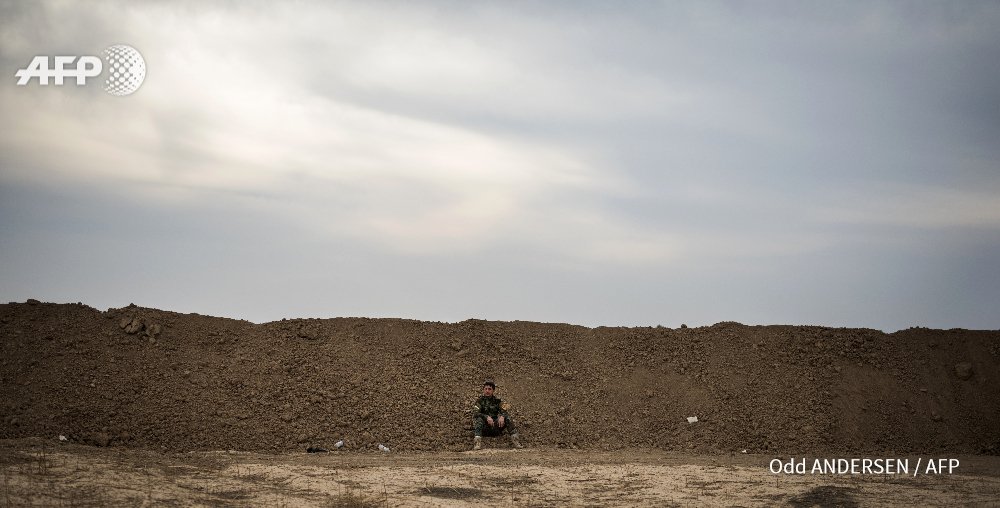
IRAQ - A Peshmerga soldier sits on a sand berm near Iraqi Kurdish checkpoint village of Shaqouli during #MosulOffensive. by @odd_andersen #AFP: image via Frédérique Geffard @fgeffardAFP, 10 November 2016

IRAQ - A Kurdish girl waits at the Iraqi Kurdish Shaqouli checkpoint during #MosulOffensive. by @odd_andersen #AFP: image via Frédérique Geffard @fgeffardAFP, 10 November 2016
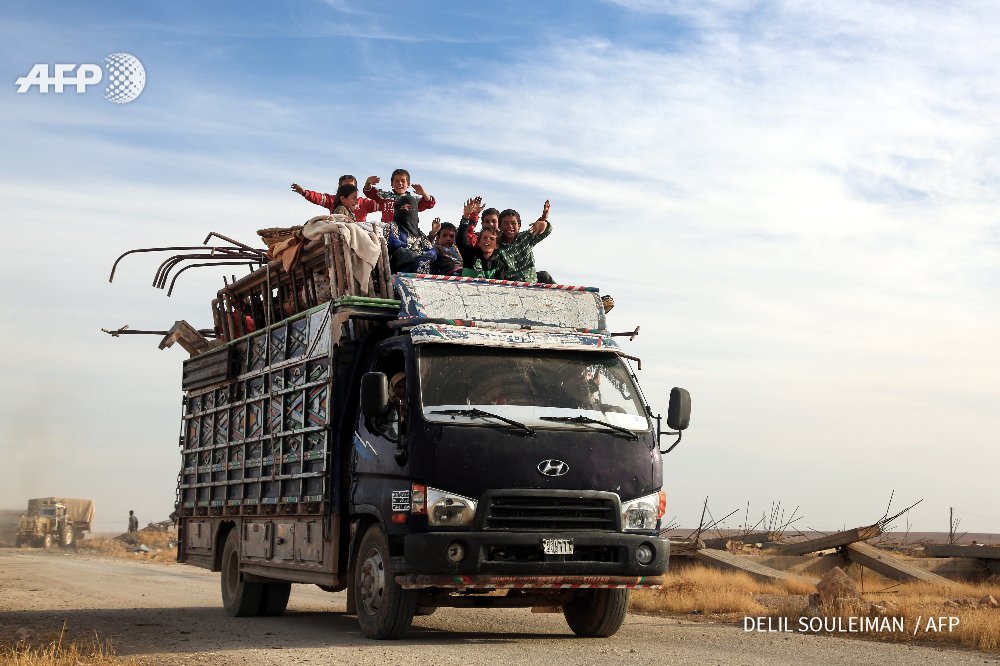
SYRIA - Syrians fleeing areas controlled by IS as they come to safety in areas held by Kurdish-Arab SDF near Mazraat Khaled By @Delilsoleman #AFP: image via Frédérique Geffard @fgeffardAFP, 10 November 2016

Syrian refugees fleeing areas controlled by jihadists of the Islamic State (IS) group. By @Delilsouleman: image via Samantha Dubois @samduboisAFP, 10 November 2016
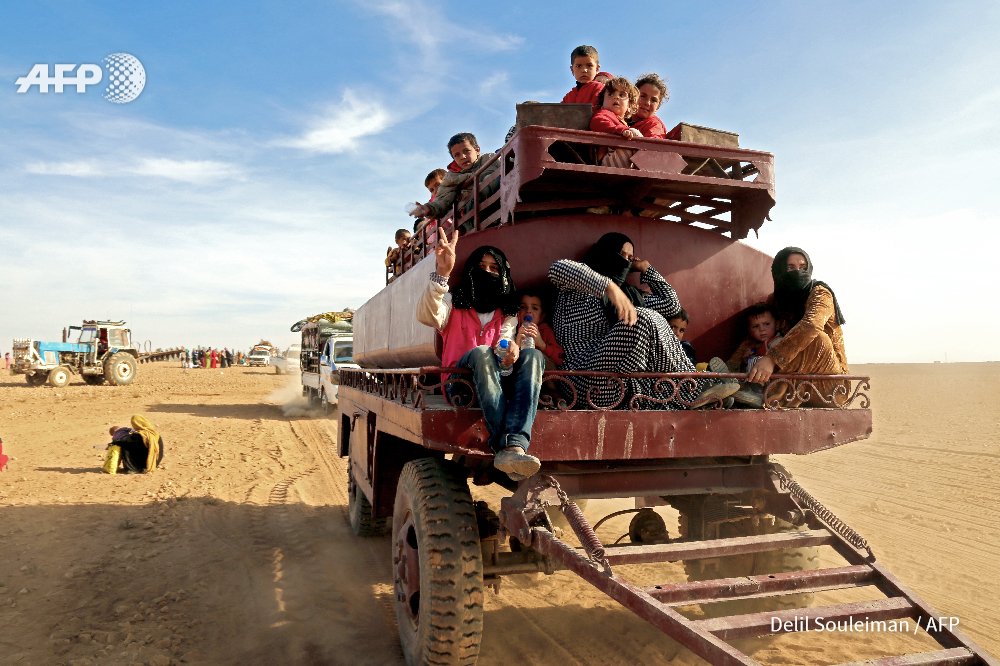
Syrian refugees fleeing areas controlled by jihadists of the Islamic State (IS) group. By @Delilsouleman: image via Samantha Dubois @samduboisAFP, 10 November 2016
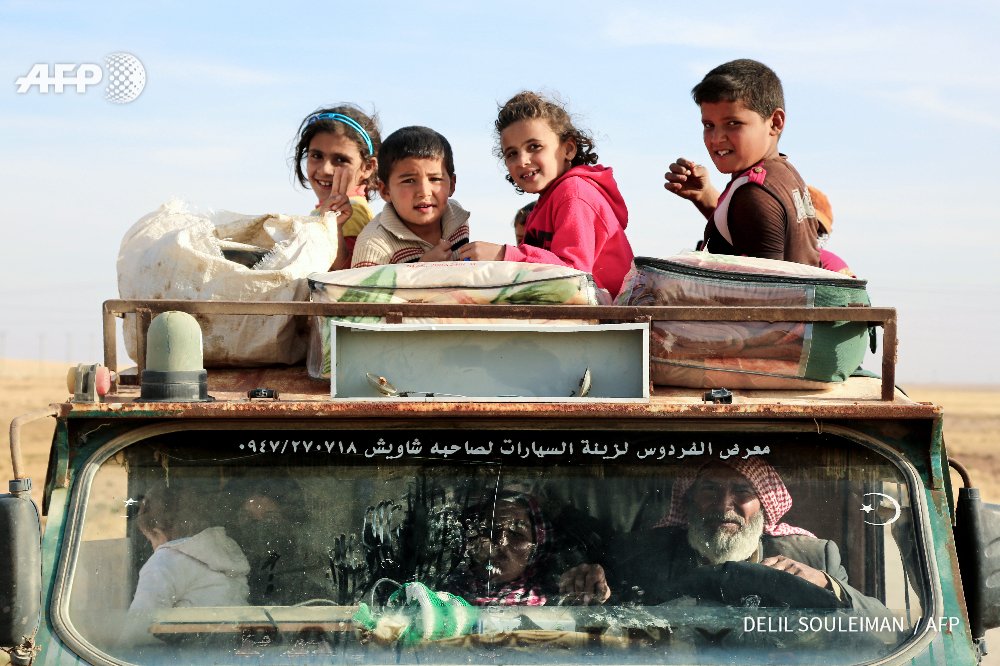
SYRIA - Syrians fleeing areas controlled by IS as they come to safety in areas held by Kurdish-Arab SDF near Mazraat Khaled By @Delilsoleman #AFP: image via Frédérique Geffard @fgeffardAFP, 10 November 2016
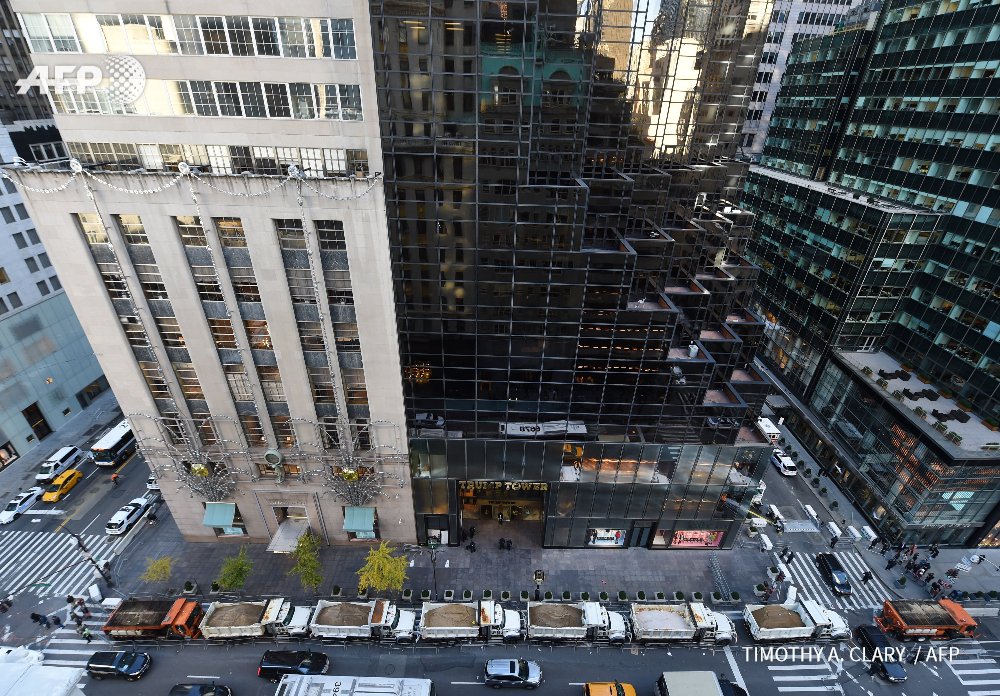
US - Protective barrier of Sanitation Department trucks is parked in front of Trump Tower on 5th Avenue, New York. By @timothyaclary #AFP: image via AFP Photo Department @AFPphoto, 10 November 2016
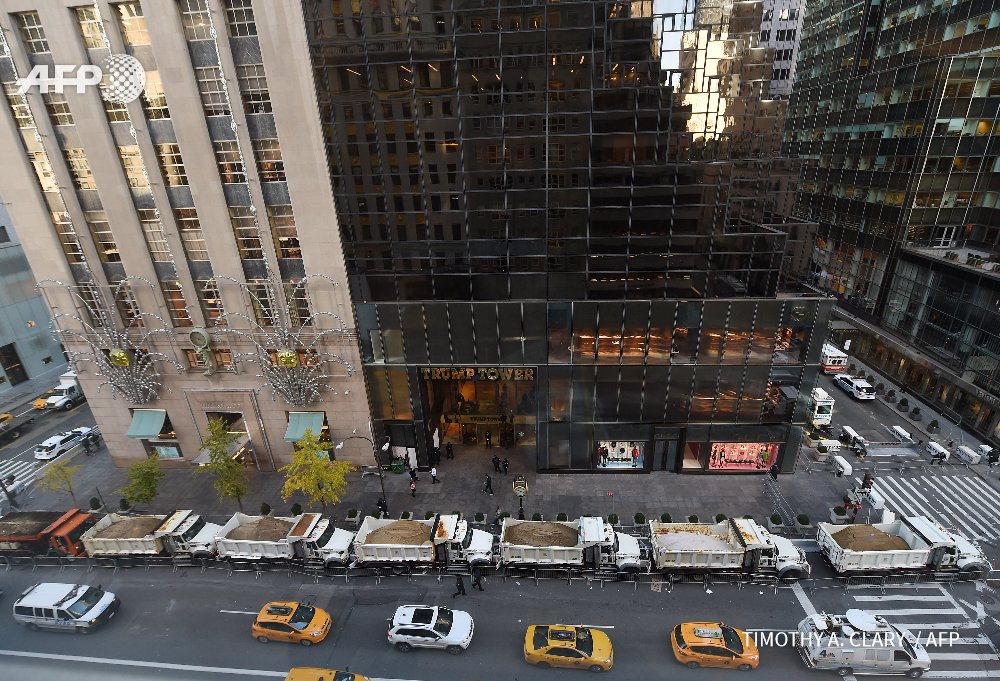
US - Protective barrier of Sanitation Department trucks is parked in front of Trump Tower on 5th Avenue, New York. By @timothyaclary #AFP: image via AFP Photo Department @AFPphoto, 10 November 2016
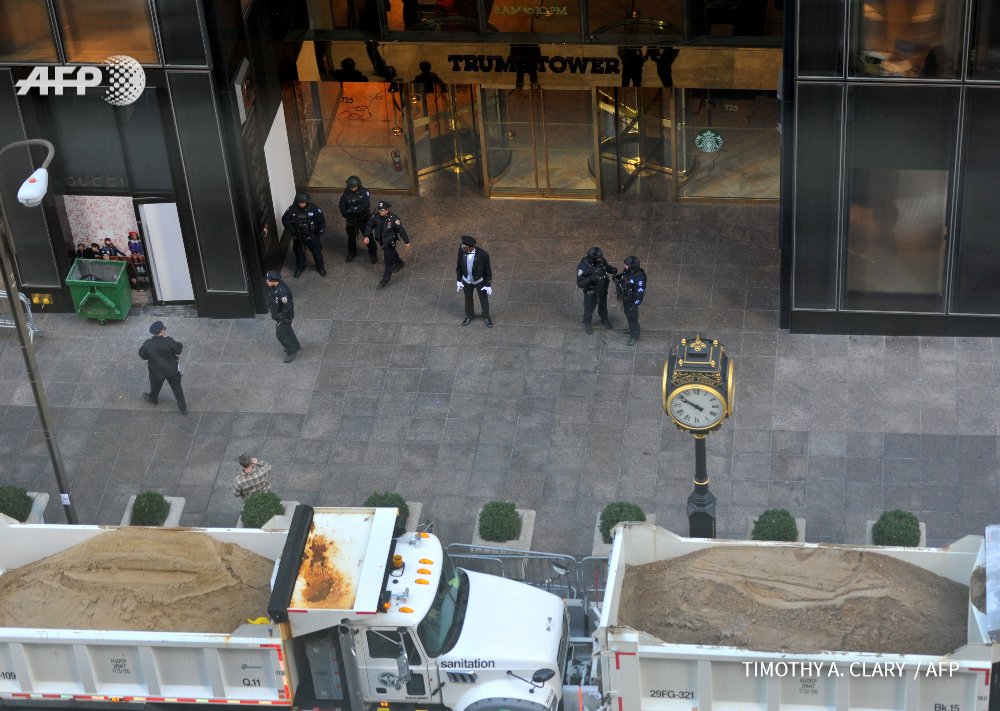
US - Protective barrier of Sanitation Department trucks is parked in front of Trump Tower on 5th Avenue, New York. By @timothyaclary #AFP: image via AFP Photo Department @AFPphoto, 10 November 2016
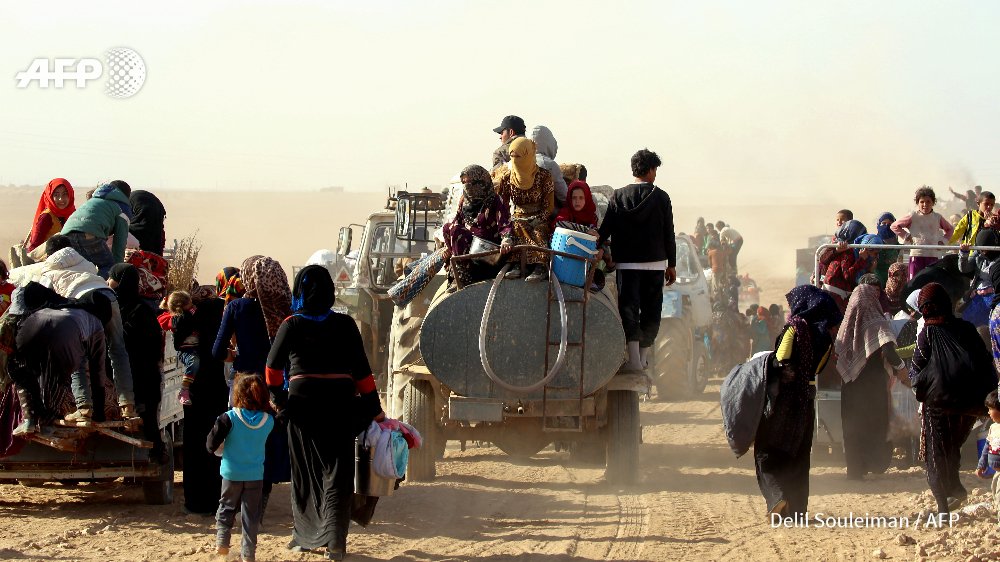
Syrian refugees fleeing areas controlled by jihadists of the Islamic State (IS) group. By @Delilsouleman: image via Samantha Dubois @samduboisAFP, 10 November 2016

IRAQ - A Peshmerga soldier sits on a sand berm near Iraqi Kurdish checkpoint village of Shaqouli during #MosulOffensive. by @odd_andersen #AFP: image via Frédérique Geffard @fgeffardAFP, 10 November 2016

IRAQ - A Kurdish girl waits at the Iraqi Kurdish Shaqouli checkpoint during #MosulOffensive. by @odd_andersen #AFP: image via Frédérique Geffard @fgeffardAFP, 10 November 2016

SYRIA - Syrians fleeing areas controlled by IS as they come to safety in areas held by Kurdish-Arab SDF near Mazraat Khaled By @Delilsoleman #AFP: image via Frédérique Geffard @fgeffardAFP, 10 November 2016

Syrian refugees fleeing areas controlled by jihadists of the Islamic State (IS) group. By @Delilsouleman: image via Samantha Dubois @samduboisAFP, 10 November 2016

Syrian refugees fleeing areas controlled by jihadists of the Islamic State (IS) group. By @Delilsouleman: image via Samantha Dubois @samduboisAFP, 10 November 2016

SYRIA - Syrians fleeing areas controlled by IS as they come to safety in areas held by Kurdish-Arab SDF near Mazraat Khaled By @Delilsoleman #AFP: image via Frédérique Geffard @fgeffardAFP, 10 November 2016

US - Protective barrier of Sanitation Department trucks is parked in front of Trump Tower on 5th Avenue, New York. By @timothyaclary #AFP: image via AFP Photo Department @AFPphoto, 10 November 2016

US - Protective barrier of Sanitation Department trucks is parked in front of Trump Tower on 5th Avenue, New York. By @timothyaclary #AFP: image via AFP Photo Department @AFPphoto, 10 November 2016

US - Protective barrier of Sanitation Department trucks is parked in front of Trump Tower on 5th Avenue, New York. By @timothyaclary #AFP: image via AFP Photo Department @AFPphoto, 10 November 2016

Syrian refugees fleeing areas controlled by jihadists of the Islamic State (IS) group. By @Delilsouleman: image via Samantha Dubois @samduboisAFP, 10 November 2016
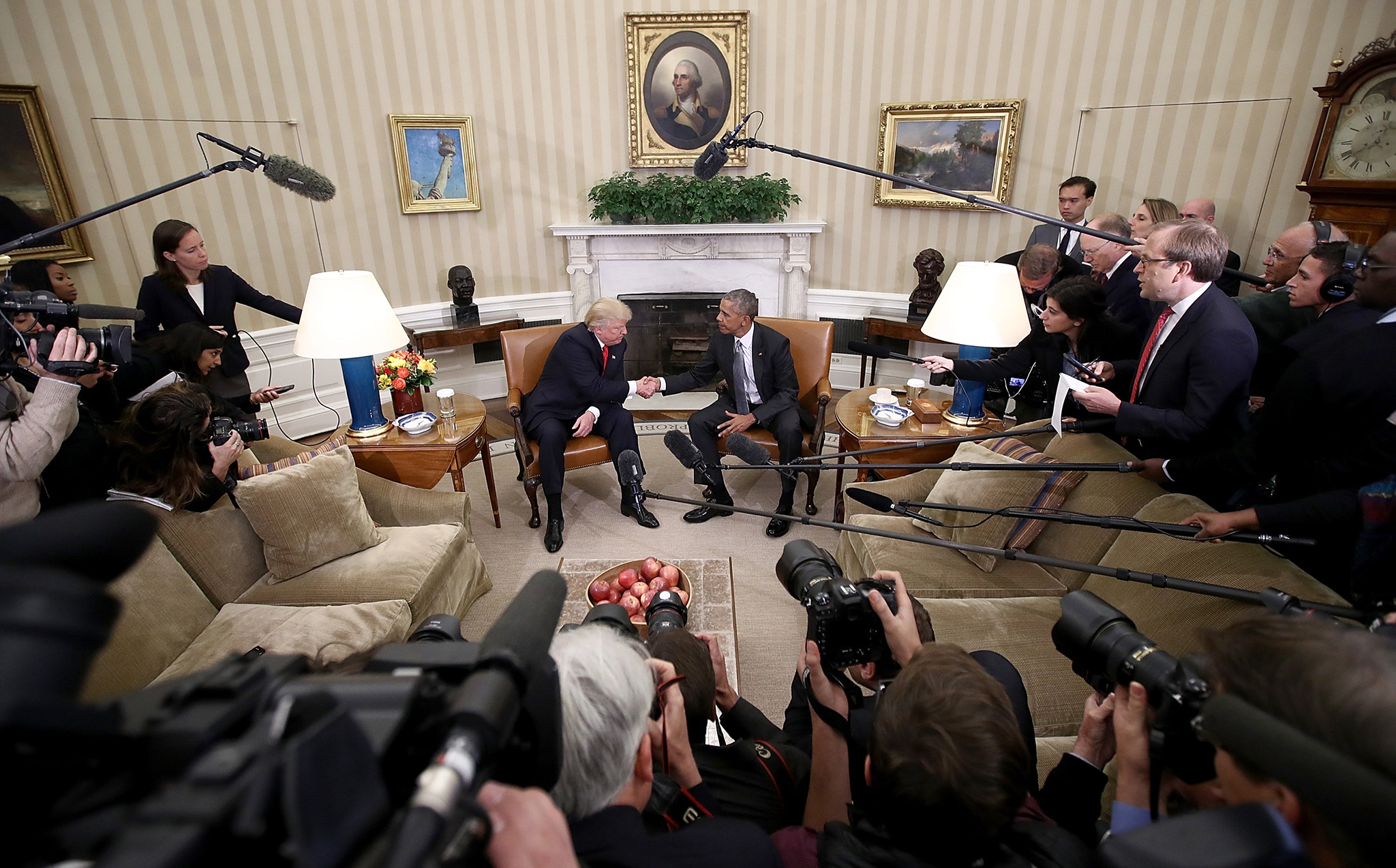

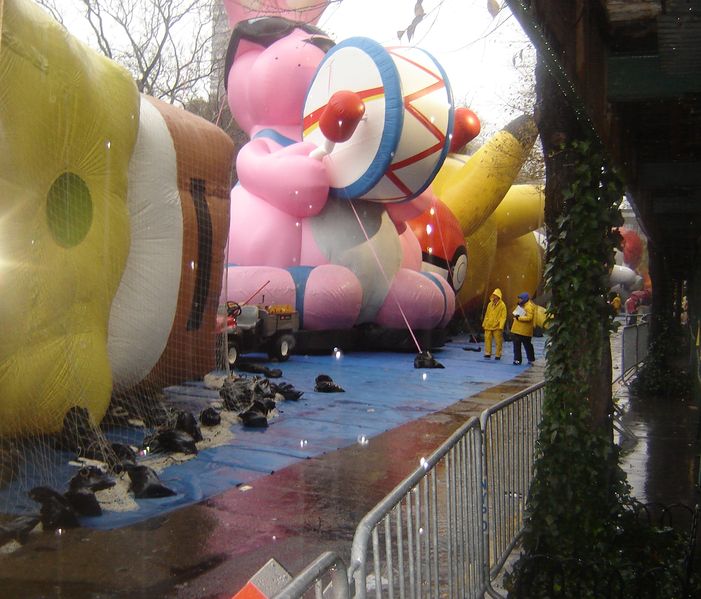





7 comments:
Leonard Cohen (1934-2016): First We Take Manhattan (complete; German TV, 17 February, 1988)
I love Leonard Cohen !!
Excellent post, Tom. This moment feels like that other collapse that FDR addresses so well. I suspect that what millions of us feel these days is akin to what my parents felt during those years of The Great Depression. There’s a wrenching sense of dread and unease and vulnerability, of something gone terribly wrong, of a change so large and profound that we can’t yet know its full dimensions. This present, ongoing collapse—and Trump is both a cause and a symptom of it—has all the markings of one of those fundamental shifts that FDR observed in his time. His policies and his compassion (rare in any politician) held the country together over a dozen years of bitter hardship; yet he was vilified by the ruling class (his own class) for his efforts. Empathy and understanding seem rare qualities always. This new crisis is certain to play out over a longer time than we would like to imagine.
Hazen,
Every word you've said rings true here. We can't grasp the full dimension, that famous fullness of time, that longer time we not only can't imagine but, literally, old friend, don't have. Old age and misery are bad enough. Going out under all this, worse.
All along felt it a travesty the "presumptive" Madame President and her massively ivy-leagued-up cadre of creeps and liars could dare call themselves representatives of the party that produced FDR. Though I suppose every thing pre-text-message is now assumed never to have happened.
Sandra, the lyrics:
Leonard Cohen: First We Take Manhattan
They sentenced me to twenty years of boredom
For trying to change the system from within
I'm coming now, I'm coming to reward them
First we take Manhattan, then we take Berlin
I'm guided by a signal in the heavens (guided, guided)
I'm guided by this birthmark on my skin (guided, guided by)
I'm guided by the beauty of our weapons (guided)
First we take Manhattan, then we take Berlin
Ah, you loved me as a loser
But now you're worried that I just might win
You know the way to stop me, but you don't have the discipline
How many nights I prayed for this, to let my work begin
First we take Manhattan, then we take Berlin
I don't like your fashion business, mister
And I don't like these drugs that keep you thin
I don't like what happened to my sister
First we take Manhattan, then we take Berlin
And I thank you for those items that you sent me, ha ha ha
The monkey and the plywood violin
I practiced every night, now I'm ready
First we take Manhattan, then we take Berlin (I am guided)
Ah remember me, I used to live for music (baby)
Remember me, I brought your groceries in (ooh, baby, yeah)
Well, it's Father's Day and everybody's wounded (baby)
First we take Manhattan, then we take Berlin
Leonard Cohen (1934-2016): First We Take Manhattan, 1987
Cohen explained his song: "I think it means exactly what it says. It is a terrorist song. I think it's a response to terrorism. There's something about terrorism that I've always admired. The fact that there are no alibis or no compromises. That position is always very attractive. I don't like it when it's manifested on the physical plane - I don't really enjoy the terrorist activities – but Psychic Terrorism. I remember there was a great poem by Irving Layton that I once read, I'll give you a paraphrase of it. It was 'well, you guys blow up an occasional airline and kill a few children here and there', he says. 'But our terrorists, Jesus, Freud, Marx, Einstein. The whole world is still quaking.'"
"Unadorned makeup" - I can't think of a better description of the modern mask.
Watching and listening to The Donald over the last few days, it looks like the "cadre of creeps" has had a quiet word with him. The establishment will stay established for now. The rire that the orange manchild stirred up may well turn toward him.
Yes, the bluff, stuttering, out of character moment of "good conduct". The formation of the transition team, a piece of comedic construction that might appear diverting if viewed from a remote galaxy. The pause before the great rushing in of The Unknown.
Meanwhile talking of a quiet word it's impossible at present to hear one anywhere, what with the bawling. Those disillusioned, not (yet?) able to grasp the willful depths of the delusion, and the infantile chanted slogan "Not My President", passing weakly for a discourse of resistance. Broken glass, trash fires and sirens in the night. All Adorno's worst intuitions about America realised around us.
Newsweek magazine, sharing the easy pleasures of the run-up, had confidently lurched out on an old media phantom limb and printed up 25000 (I think it was) copies of a Madame President issue. And I do mean PAPER (speaking of old) copies, mind you. Which then had to be withheld and binned. A. mused they'll become collector's items.
Unless the revolutionary arsonists get to those collectible trashbins first.
gracias Tom por los datos!
Post a Comment